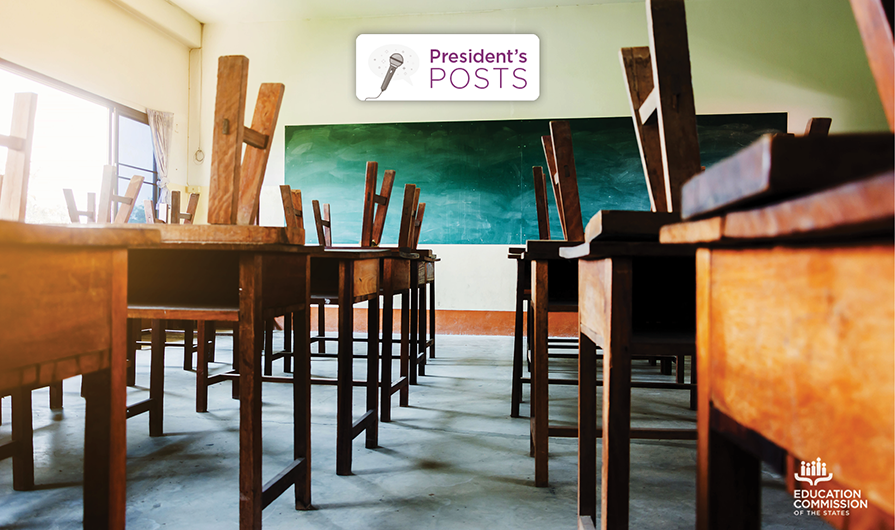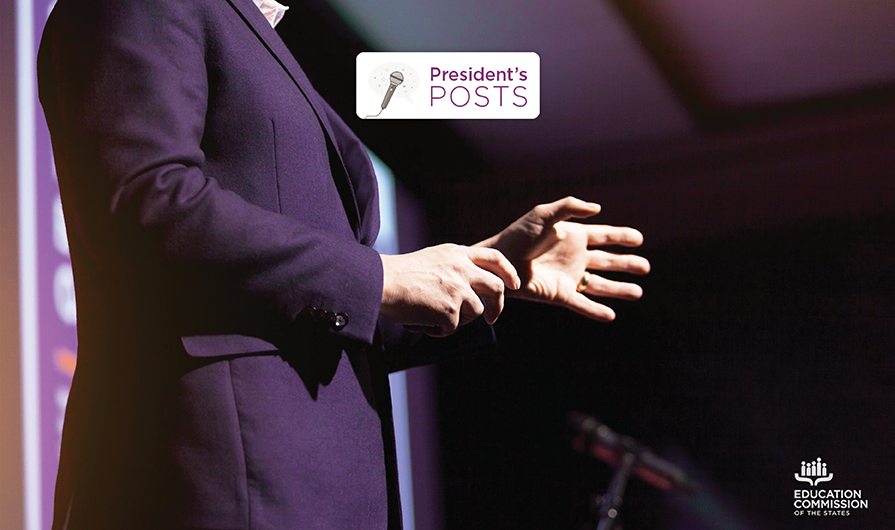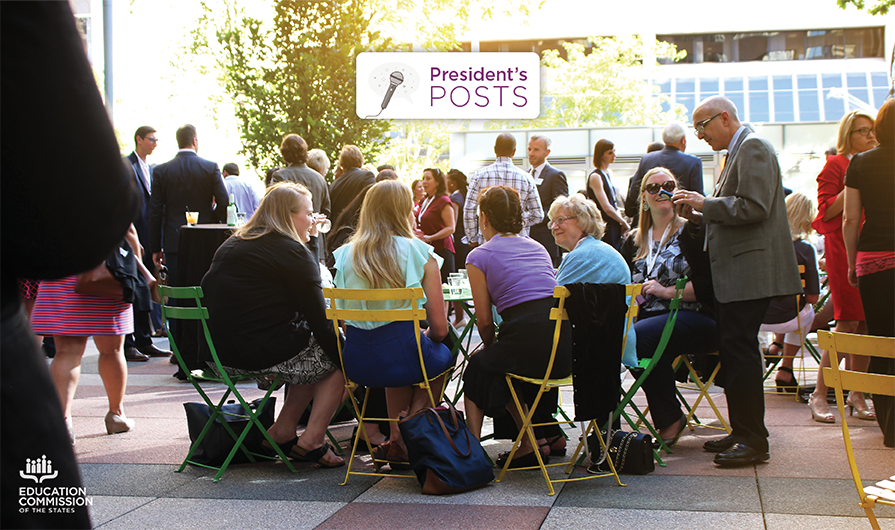Now that many school and district buildings are closed, state leaders, educators and in some cases, business leaders are looking at how best to provide continuity of education and support services to their students and communities.
While states and school districts already have plans for emergency management and temporary school closures for natural disasters and other events beyond our control, this is the longest sustained disruption to the idea of normalcy in American life — and American schools — that many of us have encountered. In times such as these, it’s important to look to one another for answers, examples and inspiration.
State leaders and staffers are being called to work across departments and role groups and beyond the parameters of their agencies and organizations to ensure that students, families, teachers and administrators are receiving the supports they need in these times of uncertainty.
As a small handful of examples of recent innovation, look to:
State leadership
Colorado Gov. Jared Polis and state partners launched the Colorado Emergency Child Care Collaborative to provide emergency child care for essential emergency workers in the state. The Illinois State Board of Education released guidance on how to provide educational and support services to students with disabilities during school closures. The New Hampshire Department of Education is hosting a series of webinars to help its students — and teachers — grow more comfortable with online learning. The State Teachers of the Year have coordinated collaborative calls to talk about how their states are tackling the issues and what supports they need.
District initiatives
Shelby County Schools in Tennessee created instructional packets, online classes, and TV and radio programs for students to support continued learning. Falls Church City Public Schools in Virginia set up an online system of wraparound supports for students, including mental health services.
Business investments
Zoom is giving K-12 schools free access to videoconferencing tools to support virtual learning, in addition to tools to support teachers and students. No Kid Hungry is offering emergency grants to support school districts and nonprofit organizations in their efforts to ensure that kids get the nutritious food they need. Google Arts and Culture is providing access to international museums for virtual tours for students and families. U-Haul is offering 30 days of free storage for college students whose terms have ended early and who may have to leave campus housing.
Our peer organizations are also working to provide invaluable resources that help guide education policymakers as they respond to the immediate needs in their states. See the:
We know that the work to ensure that students, teachers and families have all they need to continue learning is just beginning.
At Education Commission of the States, our Policy Team is actively tracking policy responses to COVID-19 and its associated impacts on school lunches, online learning, assessments, educator supports, mental health and residential schools. These policies are compiled here, and the information is updated by our team weekly.
In the meantime, we are building capacity to support all of you for what’s next, after states reopen schools and pick up where they left off: the business of educating the next generation of Americans. If there are specific supports you need from Education Commission of the States going forward, please reach out to us.
Is your school, district or state doing something particularly successful in the face of COVID-19? Tell us! We want to help share and amplify promising practices in these evolving times.









